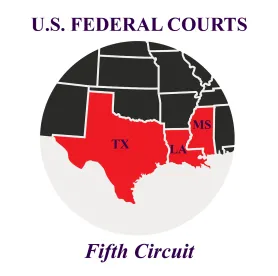In a decision that narrows the path to class certification in federal court, the Fifth Circuit has held that a plaintiff must clear the Daubert hurdle when expert evidence is relevant to the decision of a federal court to certify a class. The decision in Prantil v. Arkema Inc. cements the Fifth Circuit’s viewpoint that applying Daubert at the certification stage is required in order to ensure a proposed class’s conformity with Rule 23. The Fifth Circuit noted that this adoption is a natural extension of recent Supreme Court precedent in Wal-Mart Stores, Inc. v. Dukes and Comcast Corp. v. Behrend — but not all circuits necessarily agree on how to square these precedents with Daubert, creating a circuit split. We have previously discussed the implications of the ongoing circuit split on this blog in 2018.
Prantil involved the fallout of Hurricane Harvey: Record floods caused volatile chemicals to combust at a facility in Crosby, Texas, releasing toxic ash and smoke into the environment and triggering evacuations of nearby residents. Local residents sought redress from the physical and financial effects of the incident against the chemical facility’s owner, Arkema, and filed a putative class action. The district court credited three of the plaintiffs’ experts, excluded the plaintiffs’ damages expert, and ultimately granted the plaintiffs’ motion for class certification. In reaching its decision, the district court voiced uncertainty as to whether the Daubert analysis applied at the class certification stage. The defendants sought interlocutory review under Rule 23(f).
The Fifth Circuit reversed, focusing on the plaintiffs’ failure to submit “evidentiary proof” of their compliance with Rule 23. The court found that the class certification inquiry “must be made based on adequate admissible evidence to justify class certification,” and therefore if “an expert’s opinion would not be admissible at trial, it should not pave the way for certifying a proposed class.” The Fifth Circuit’s admonition wasn’t that the district court hadn’t performed any analysis at all, but that the district court’s opinion “reflect[ed] hesitation to apply Daubert’s reliability standard with full force.” This hesitation resulted in the district court not being “as searching in its assessment” of the expert evidence’s reliability as it would have been “outside the certification setting.” The Fifth Circuit emphasized that assessing the reliability of expert evidence cannot wait for trial — instead such an assessment is warranted and required at the class certification stage. Therefore, the court required the district court to “exercise its gate-keeping role” through utilizing the “full force” of Daubert. In short, given that a standard for admissibility for scientific evidence exists, the Fifth Circuit will require courts to apply — and parties to meet — that standard at the class certification stage.
Prantil agrees with a growing number of federal circuits — namely the Third, Seventh, and Eleventh — that have required a full Daubert analysis at the class certification stage. But other circuits disagree (i.e., the Ninth Circuit).
Requiring a full Daubert analysis has far-reaching implications. Expert testimony plays a critical role at the class certification stage in many putative class actions, and the class certification decision is often dispositive of the case as a practical matter. Trials in class actions are vanishingly rare, so class certification is often the only time for the district court to test the reliability of a plaintiff’s expert. Given the stakes, class certification should not rise or fall on junk science.
In due time, the Supreme Court will have to decide whether to embrace the Fifth Circuit’s rule. It has already signaled in dicta in Wal-Mart Stores, Inc. v. Dukes — dicta that the Fifth Circuit expressly incorporated into their opinion in Prantil — which way it leans: “The District Court concluded that Daubert did not apply to expert testimony at the certification stage of class-action proceedings. We doubt that is so….” What is more, the court’s decision in Comcast turned on the evidentiary value of expert testimony admitted by the district court. The momentum towards applying Daubert at class certification seems overwhelming. The Supreme Court has repeatedly stated that Rule 23 is not a mere pleading standard, and this anodyne statement carries with it a strong likelihood that Daubert is coming for class actions.
We close with a word of warning. Prantil may prove a double-edged sword: Just as plaintiffs will have to satisfy Daubert to use their experts at class certification, defendants will have to satisfy Daubert to resist those experts. Developing a full arsenal of rebuttal experts requires aggressively front-loading the development of class-certification defenses. Because many class certification defenses may overlap with the merits, instead of waiting for summary judgment, class certification will become the practical deadline to have experts retained, educated, and prepared. And, as a result, the fact discovery necessary for those experts’ opinions may not be able to wait until after class certification. Decisions about the scope and bifurcation of discovery must be made with Daubert in mind.




 />i
/>i
